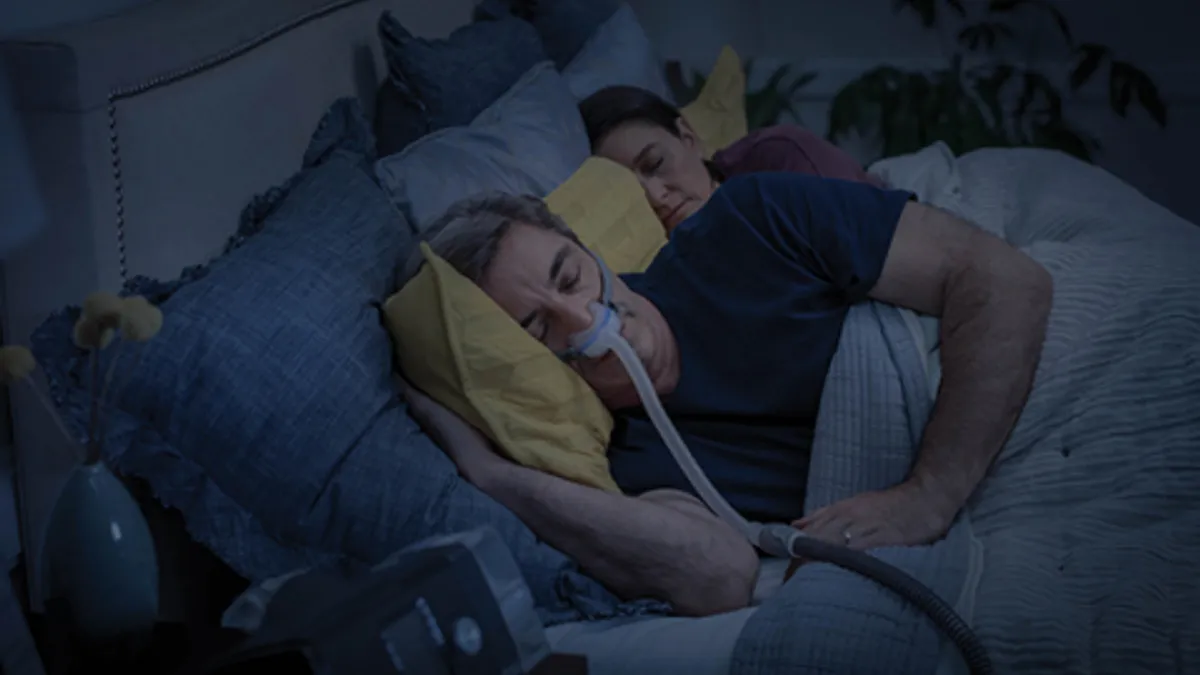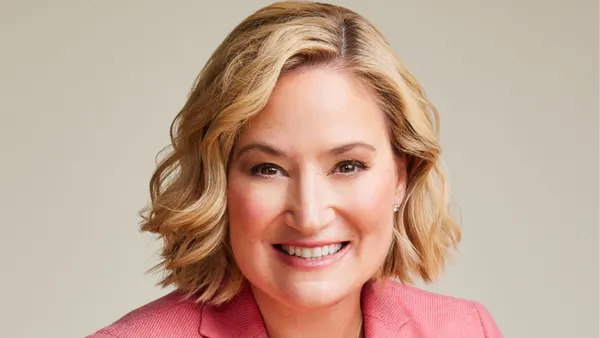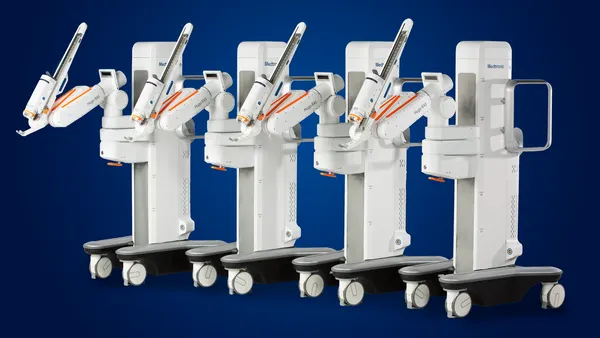Dive Brief:
-
Four dozen home medical equipment companies surveyed by analysts at investment firm Needham & Company expect sleep patient volumes to grow faster than a previous forecast, per a report shared with investors Monday.
-
The 15% growth forecast for the next 12 months is up from an 11% prediction six months ago. Although the trends suggest a tailwind for Philips Respironics and ResMed, the survey found those sleep tech leaders are likely to lose market share to smaller competitors. There are also signs that the price of flow generators is stabilizing.
-
In an earnings report Tuesday, Philips said sales in its sleep and respiratory care were flat during the fourth quarter of 2019. The company simultaneously announced Roy Jakobs as new chief for its broader connected care business, pushing out Carla Kriwet. It also disclosed a potential sale of its home appliance business to focus more on health technology. ResMed is scheduled to report quarterly results on Jan. 30.
Dive Insight:
Analysts at Needham have tracked the sleep market for years. Historical data show patient volume growth slumped around 2017, bottoming out around zero, but has been on the rise ever since.
In their latest survey, conducted in partnership with HME News, analysts found growth is at its highest since the firm changed how they assessed the market in 2013.
On average, survey respondents reported a 15% rise in patient volumes over the past year and predicted comparable performance for the next 12 months. The figures are up on the 10% and 11% growth respectively experienced and forecast when Needham last ran the survey six months ago.
The findings suggest demand for flow generators, masks and other medical devices used in the care of patients with sleep disorders will rise over the coming year. That is only one part of the picture, though. Manufacturers of sleep devices will also be affected by equipment prices.
Needham found some encouragement on the pricing front, too. Respondents said flow generator prices fell 1% over the past 12 months, an improvement over the 2% decline tracked in the previous survey. The rise is part of a multi-year trend that has seen pricing recover from the minus 6% slump that hit the industry in 2014. The positive trend was offset by a fall in the price of sleep masks.
With volume growth outstripping price declines, there is scope for manufacturers of sleep devices to grow sales over the coming year.
According to the survey, Philips Respironics currently has 62.8% of the flow generator market. ResMed is the next biggest player with a 32.2% share of the market. The survey suggests both companies will lose share over the next 12 months, with Philips Respironics taking the biggest hit of 1.7 percentage points. The market share is forecast to transfer to unnamed smaller rivals, which Needham expects to claim 2.4 percentage points more of the field.
Philips CEO Frans van Houten said on an earnings call Tuesday that after a "very strong" 2018 for Philips' sleep business, "2019 became a stronger year for our competitor."
Van Houten said the company will "fight back" and to expect "increased momentum" during 2020.










